Affiliate links on Android Authority may earn us a commission. Learn more.
CES 2019: All the announcements in one place
January 10, 2019
Held annually in January in bustling Las Vegas, the Consumer Electronics Show is one of the biggest tech events of the year. Almost every major technology brand was at the event, ready to show off their newest products, some of which could be the ever-fabled “next big thing” in 2019.
As with most new technology releases, many CES 2019 products were shrouded in mystery. Even behind-the-scenes here at Android Authority, we often made appointments to meet with companies and didn’t necessarily know all the details of what we would see until right before the show began.
Related: Android Authority’s CES Top Picks 2019 Awards: Our favorite products from the show
While Android Authority is traditionally a mobile-first publication, the reality is that mobile news made up a small portion of what was shown at CES 2019. There were announcements related to PC and gaming hardware, smart home, VR, AR, car technology, robots, and lots of random things like electric toothbrushes or smart rubber duckies (yes, really). Most of the year’s biggest mobile releases — including the Samsung Galaxy S10 — will happen a bit later in the year, likely at or around Mobile World Congress 2019, which happens at the end of February.
Obviously mobile is the bread and butter of Android Authority. However, at this year’s show, we also covered plenty of other exciting technologies such as smart home, laptops, gaming computers, television/monitor technology, and anything else that we felt our audience would find compelling.
We’ve brought you coverage of all the major announcements as they happened and had a crack team on the show floor to sample all the best new tech so we could share our impressions with you, our awesome readers.
Below, you’ll find our roundup of everything announced so far at the Las Vegas show.
All the CES 2019 announcements so far
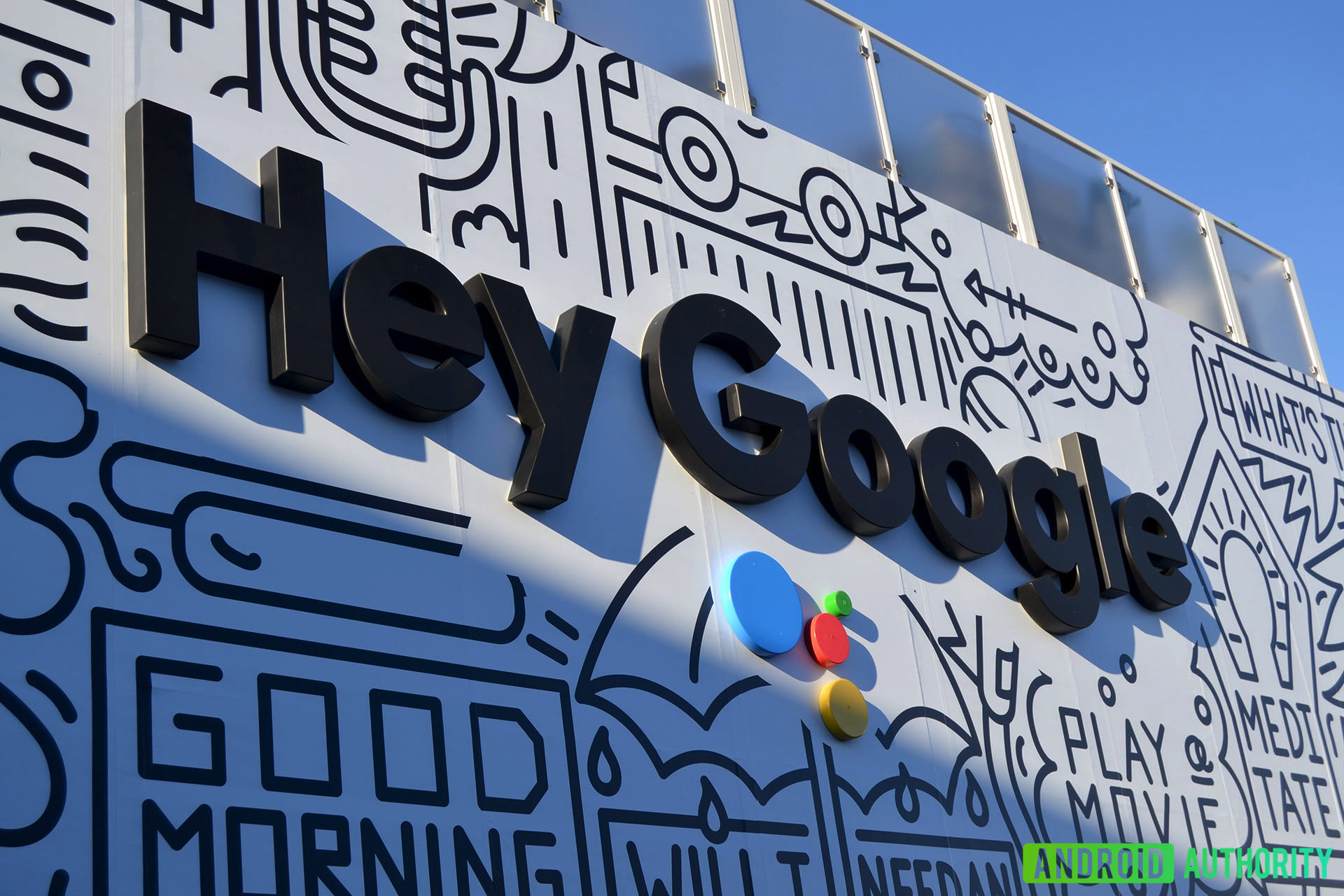
Google had a huge exhibit space at CES 2019 (complete with its own roller coaster) and it had plenty of announcements as well. One was that it expects its Google Assistant digital helper to be available on one billion devices by the end of January 2019, which is a huge jump from the 500 million device milestone it achieved in May 2018.
Google Assistant was all over CES 2019, as tons of companies announced its use in smart speakers, connected home products and more. That includes the long-awaited support on the Sonos One and Sonos Beam speakers. Google also announced more features for Google Assistant this week, including its integration into Google Maps, and how it can help you check into your airline flight. Android users will let you use Google Assistant to respond to text messages on your phone, via SMS, WhatsApp, Messenger, Hangouts, Viber, Telegram, Android Messages, and more. Verizon also announced the Google Assistant-based HumX, which will give you info on your car’s diagnostics when plugged in.
If you own a Google Home smart speaker or Smart Display, Google announced a new Assistant feature that might come in handy: Interpreter Mode. It will offer audio translations of someone else’s language into your local language on Google Home speakers, and text translations on Smart Displays.
Also, Android phones will soon get an update that will allow people to set up their phone so they can access features on Google Assistant without having to go out of the lock screen, including search results, setting up alarms and more.
Finally, Google announced Google Assistant Connect at CES 2019. It will allow companies to connect to an Assistant-based smart speaker or Smart Display without the need to include their own speakers and microphones. For example, the smart speaker could connect to an e-ink display to show information like the current weather conditions. More information on Assistant Connect will be revealed later this year.
LG
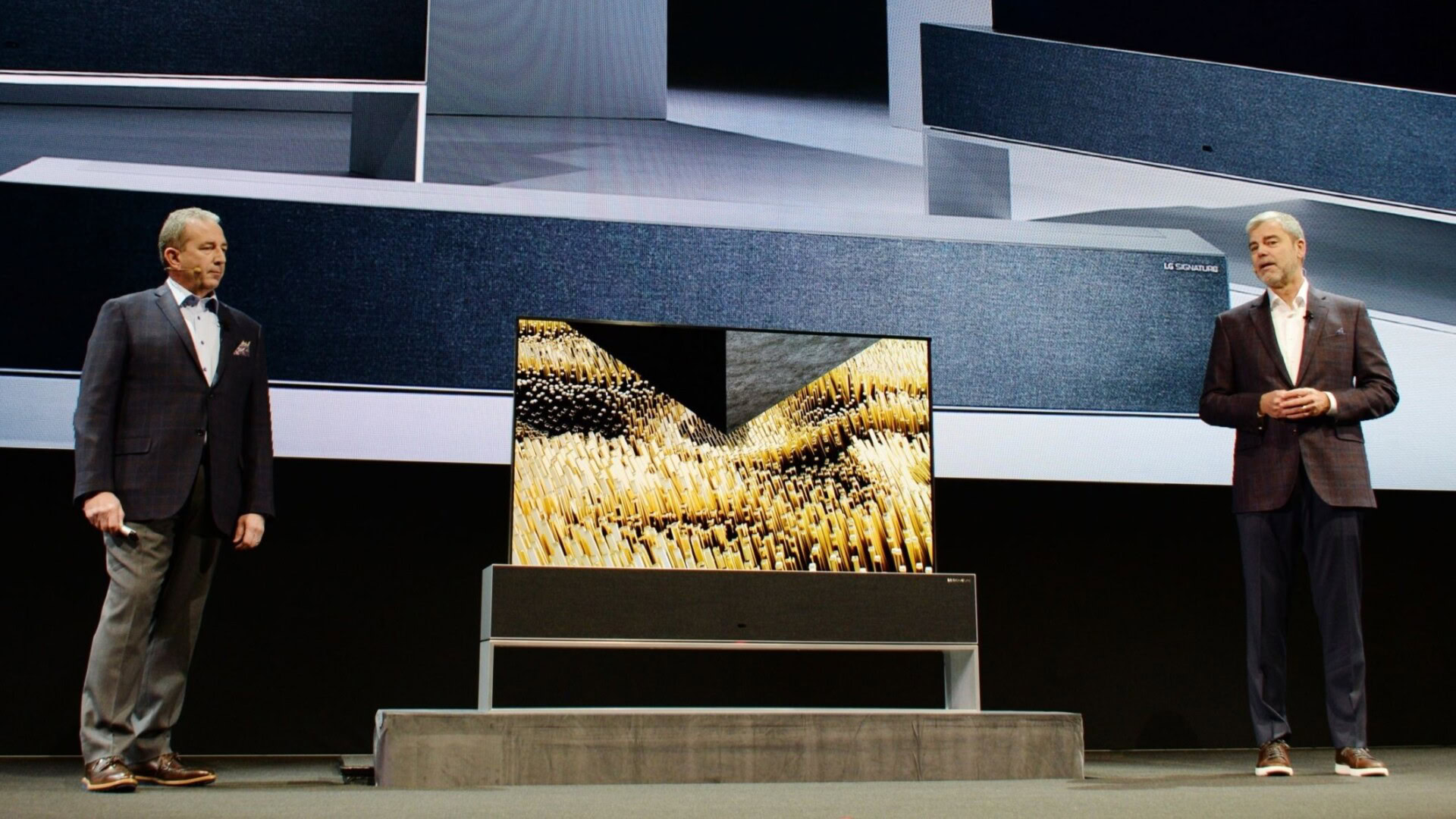
Originally, there were rumors that an LG foldable smartphone would debut at CES 2019. That didn’t turn out to be the case, however.
Instead, we got LG’s usual scattershot-style presentation with all kinds of announcements stumbling up against each other with very little connective tissue aside from the word “ThinQ” being repeated every 10 seconds.
The big reveal was the LG Signature OLED TV R — a TV with a rollable OLED display that hides inside the stand when you’re not watching. LG also announced that its new TVs will support AirPlay 2 and Apple HomeKit, which was kind of a running theme for TV makers at CES 2019.
As well as a raft of other announcements relating to its TV tech (including 11 new OLED/LCD models), LG also showcased its new smart alerts system for home appliances and a smart beer maker. No really, it’s called the LG HomeBrew and it sounds awesome.
With all that and the three soundbars with Google Assistant and Dolby Atmos support, LG had a fairly busy CES 2019, but aside from the rollable TV, it didn’t really deliver much of a wow factor.
Samsung
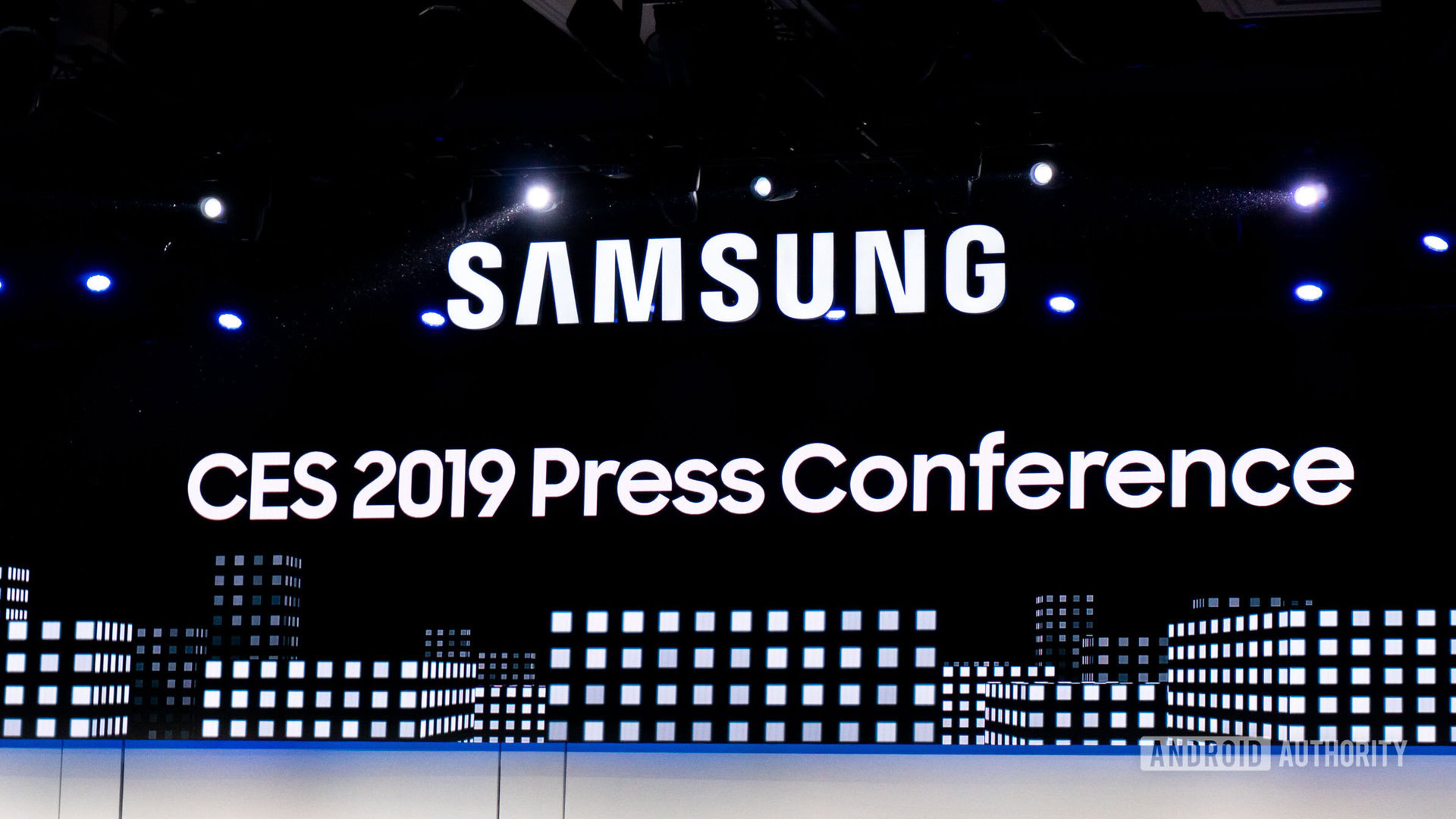
As expected, we didn’t see the Samsung Galaxy S10 at CES 2019, but the South Korean giant still had plenty to show off.
In addition to the 75-inch, modular MicroLED TV revealed ahead of its press conference, Samsung brought a whopping 98-inch QLED 8K TV to Las Vegas with HDMI 2.1 support.
Elsewhere in TV land, Samsung confirmed that its smart TVs will soon offer iTunes movies and TV shows and support Airplay 2. You’ll also be able to control Samsung smart TVs via Google Assistant- or Amazon Alexa-powered devices.
New smart fridges and robots also debuted at the show, as well as the Notebook 9 Pen and a brand new Odyssey gaming laptop.
Samsung also quietly confirmed in a press release that its Bixby assistant will soon be able to control Google apps.
Lenovo
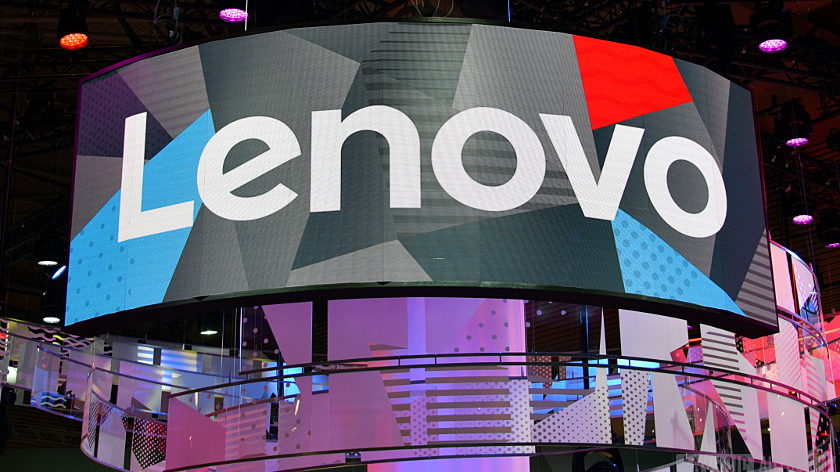
Lenovo always reveals a ton of new and upcoming products at CES, and 2019 was no exception. That included some new PC laptops, including some new high-end notebooks made for the growing hardcore gaming audience that also have NVIDIA’s new GeForce RTX 20 Series discrete graphics for laptops. It also revealed a couple of nice gaming PC monitors, including a huge 43.4 inch screen.
The company also introduced the Lenovo Smart Clock, a small smart speaker with a 4-inch display that can also serve as your bedside alarm clock. You will use voice commands for the most part with this clock, powered by Google Assistant, which it comes out this spring for $79.99, which also makes it the cheapest Google Assistant smart display-based speaker you can get.
Lenovo also announced new Yoga PC products, including an all-in-one PC with a big 27-inch screen that’s made for digital artists. Finally, it announced two Smart Tab Android tablets that come with their own charging dock that doubles as a smart speaker as well. Both are due for release in March.
Sony
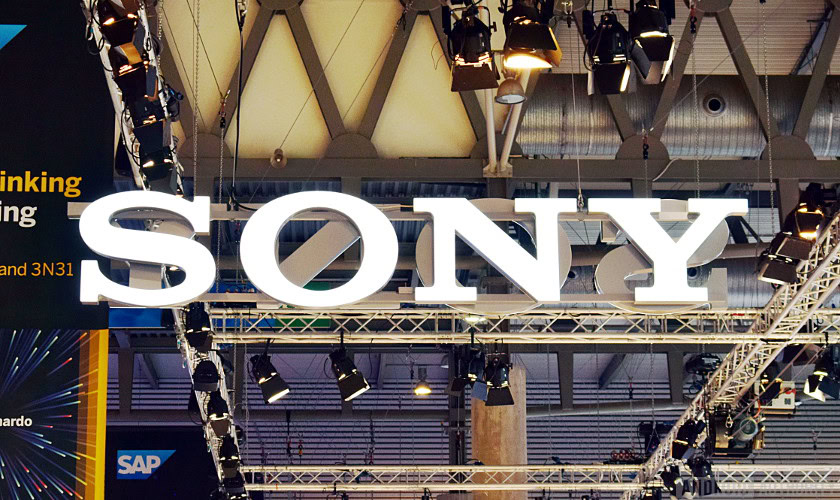
Sony had a strange CES 2019, eschewing its usual flurry of announcements for something of a victory lap.
The Japanese giant talked up the success of its audio division, its hit feature film Spider-Man: Into the Spider-Verse, and boasted to the world that it has now sold more than 91.6 million PS4 consoles worldwide.
Of course, there wasn’t any mention of Sony’s flagging smartphone division. In fact, the Xperia brand was entirely absent from the show for the first time in years. We did get a surprise appearance from singer/rapper Pharrell, so there’s that.
As for what products were announced, Sony revealed its first 8K TV sets, some new 4K TVs, and a whole bunch of audio products.
HTC
HTC has had something of a rough time in the mobile sector in recent years, but that hasn’t stopped the company from forging ahead with its other major business: VR.
HTC’s Vive brand delivered two new virtual reality headsets at CES 2019 — the Vive Pro Eye and the Vive Cosmos.
The Vive Pro Eye is an upgraded version of HTC’s flagship head mounted display and features eye-tracking technology.
The Vive Cosmos, meanwhile, is aimed at entry level users with a much simpler set-up procedure and compatibility with a much wider range of PCs.
Pricing and availability for both the Vive Pro Eye and Vive Cosmos have yet to be confirmed.
Nvidia
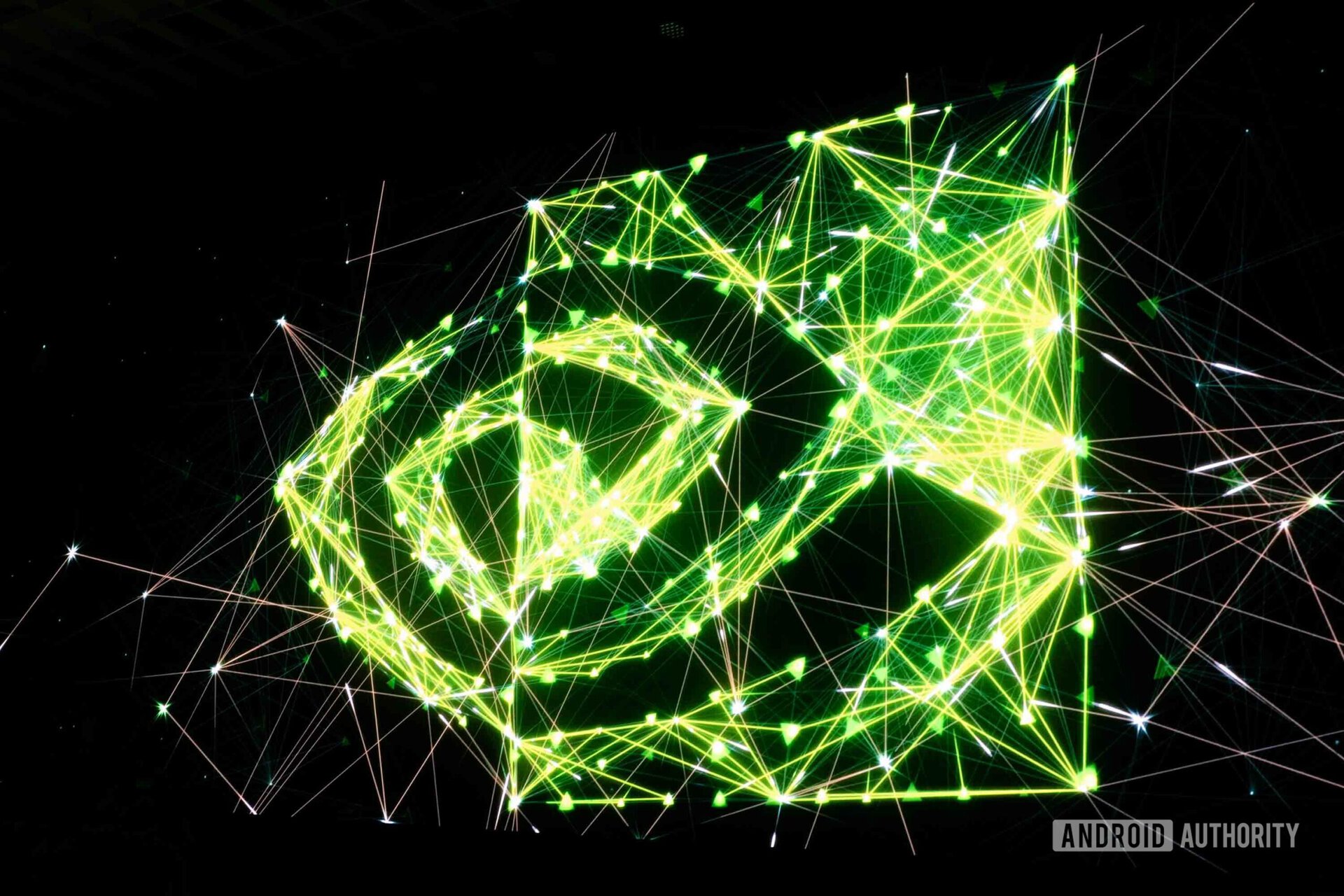
NVIDIA CEO Jensen Huang announced on stage at CES 2019 that more than 40 new laptops will arrive later this month packing the company’s new GeForce RTX 20 series discrete graphics processors.
While we already saw the RTX 2080m, RTX 2080 TI, the RTX 2070, and the Titan RTX in 2018, NVIDIA saved the least powerful member of the series — the RTX 2060 — until its CES 2019 keynote demo. The company showcased how ray tracing correctly renders reflections and refractions.
Huang demonstrated that the RTX 2060 can run Battlefield V at 60 frames per second using a 1440p resolution with ray tracing switched on. The GPU is expected to provide a huge boost for gaming laptop manufacturers and cut down on the bulky builds we’re used to seeing from the product category.
NVIDIA also revealed it’s working on drivers to support A-Sync monitors. NVIDIA’s intent is to bring G-Sync capabilities to these panels so gamers aren’t forced to purchase a new display. The company already tested 400 but for now only 12 qualify. NVIDIA will dub these supported panels as “G-Sync Compatible monitors.”
Razer
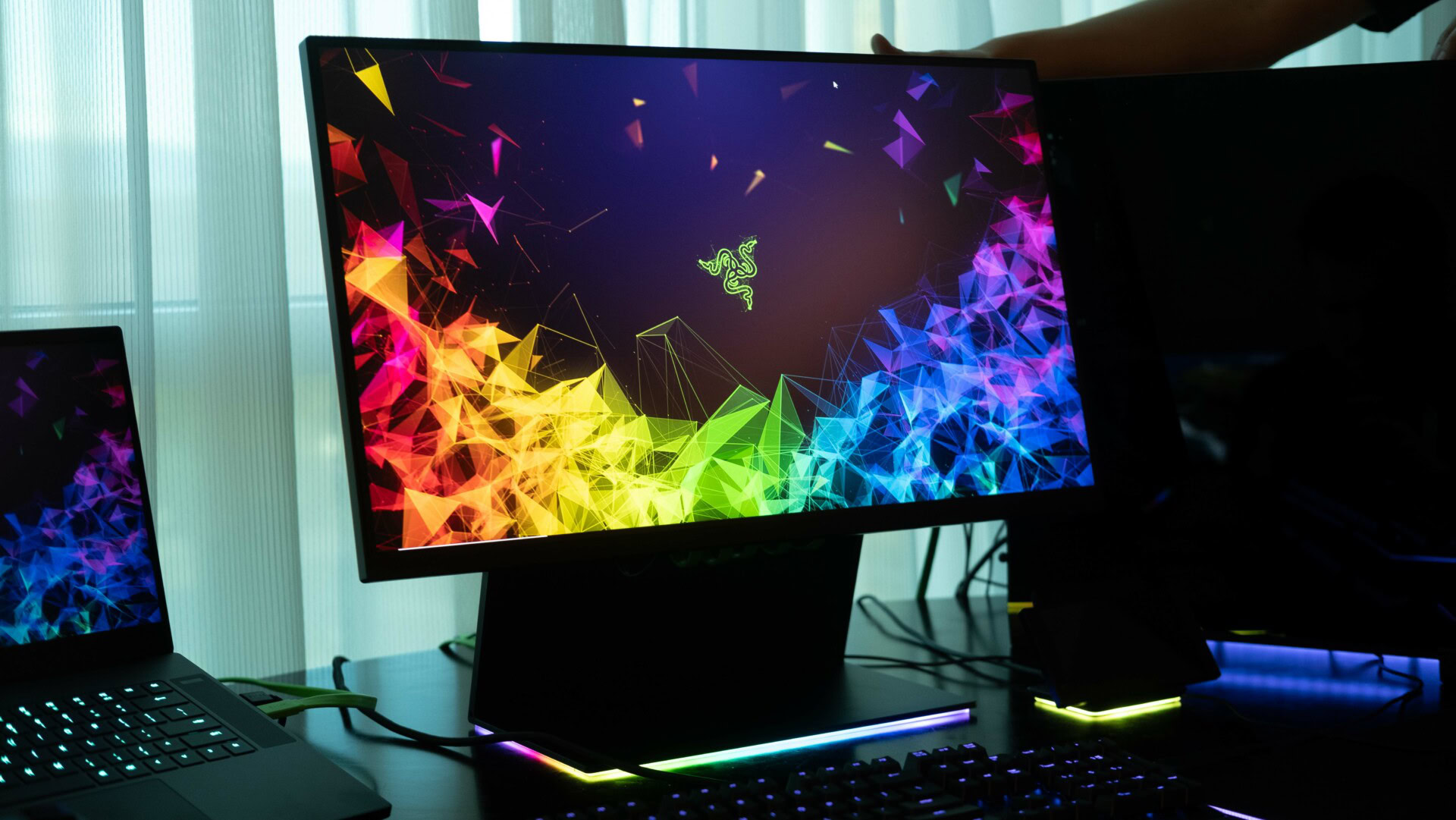
Unsurprisingly, it was Razer that led the charge for the new NVIDIA RTX 20 series laptop announcements with the reveal of the Razer Blade 15 Advanced.
The Razer Blade 15 Advanced lineup is now offered in RTX 2060, RTX 2070 with Max-Q, and RTX 2080 with Max-Q configurations. The new RTX 20 family brings several improvements over older NVIDIA GPUs including real-time ray tracing, artificial intelligence, and programmable shading.
The Blade 15 Advanced lineup are powered by the Intel Core i7-8750H6, feature 16GB of dual-channel system memory (upgradeable to 64GB), and up to 512 GB of SSD storage. The Blade 15 Advanced feature a 15.6-inch Full HD display with a 144Hz refresh rate, though 4K variants of each GTX 20 model will also be offered.
In addition to a new esports-ready Razer Raptor monitor, Razer also teased a Blade 15 with a 15.6-inch Full HD display capable of 240Hz refresh rates and a second Blade 15 variant with a 4K OLED touch display.
You can read more about all of Razer’s new products and prototypes in our hands-on.
Intel
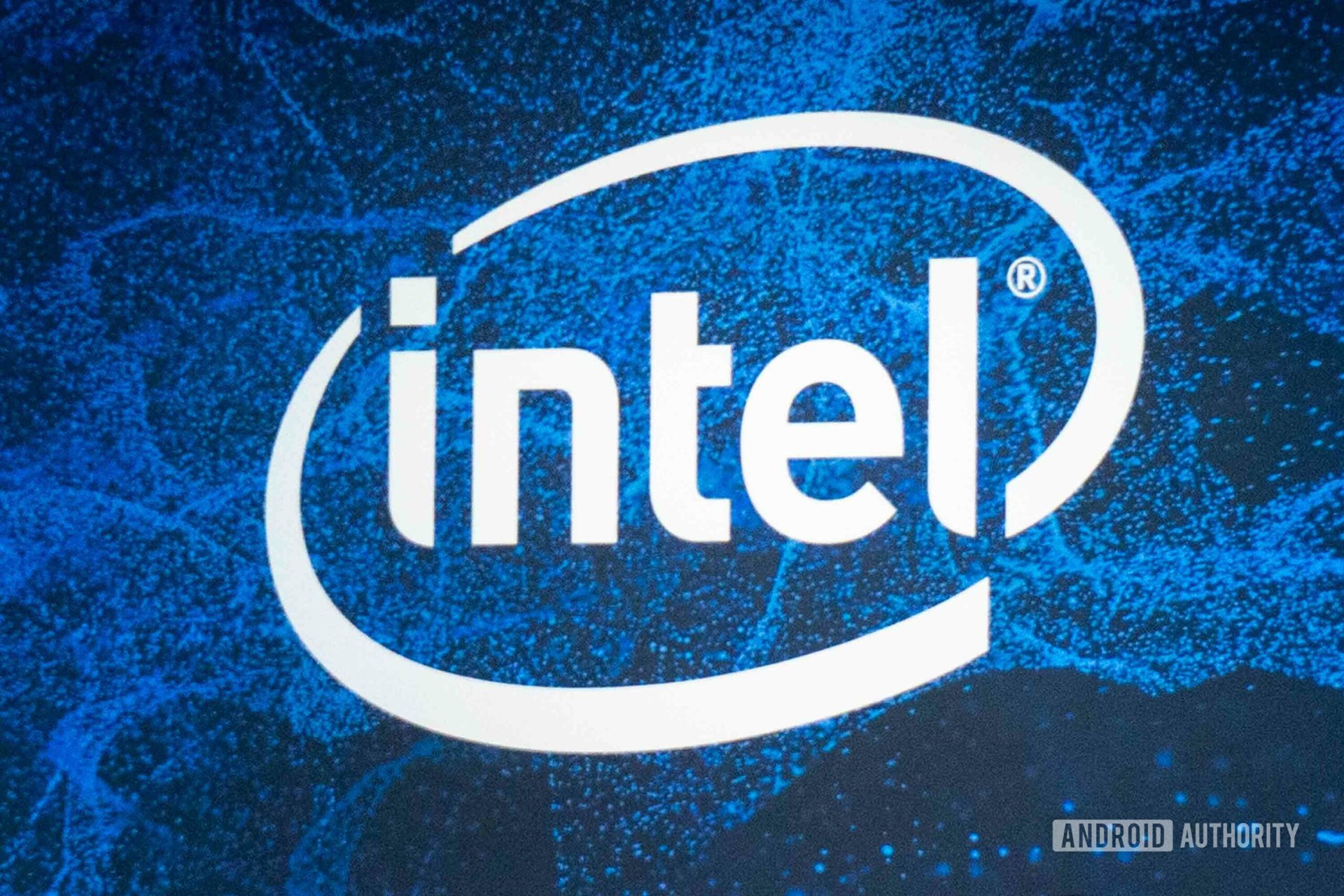
Intel’s CES 2019 press conference centered on its new Ice Lake laptop chips. The mobile chip range is Intel’s first “volume” 10nm PC processor for thin laptops, which should provide better battery life and less thermal-induced throttling.
Ice Lake uses Intel’s Sunny Cove micro-architecture, which allows for more tasks to be executed in parallel, and packs algorithms to reduce latency. The range also promises faster AI performance, Thunderbolt 3 integration, and Wi-Fi 6 support.
Intel also announced a 10nm Snow Ridge SoC for 5G base stations, and 10nm Cascade Lake Xeon and 10nm Lakefield processors.
If we had to summarize Intel’s CES 2019 in a word? That’d be ’10nm.’
HUAWEI and HONOR
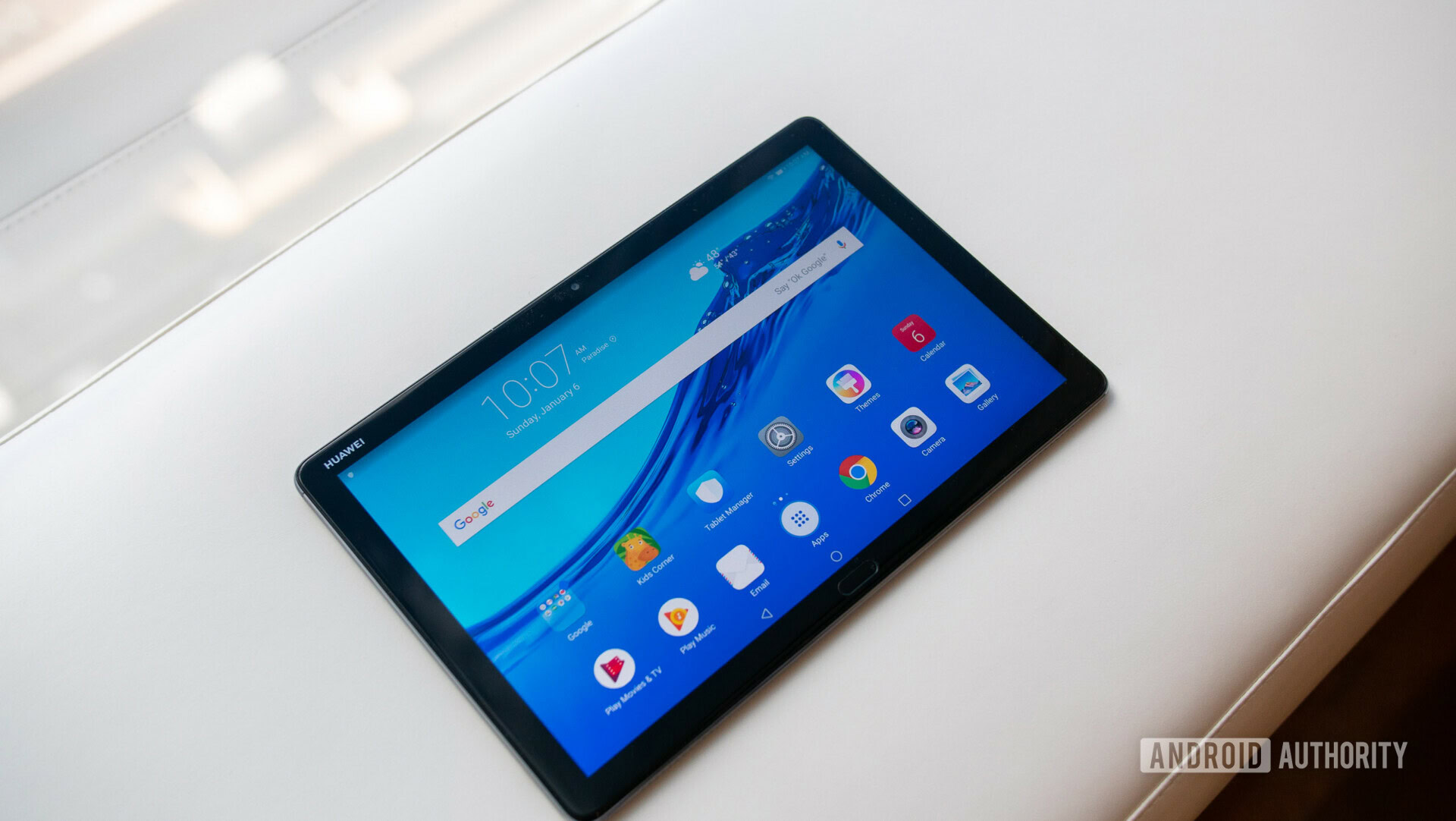
Over the past year, HUAWEI has been dogged with controversies surrounding its alleged ties with the Chinese government. Several countries — including the United States — have barred the use of HUAWEI networking equipment, citing security concerns. The government even stepped in to prevent HUAWEI smartphones from coming to the country.
But that didn’t stop HUAWEI from bringing new wares to CES 2019, albeit in a more muted fashion than it would have no doubt liked.
While there were no smartphone announcements from either HUAWEI or its Honor sub-brand, the Chinese giant did have new laptops and tablets to show off.
The MateBook 13 is HUAWEI’s latest mid-range laptop/MacBook Air-rival that sits somewhere between the company’s ultra-slim MateBook X and its semi-premium MateBook D.
HUAWEI also revealed the family-friendly HUAWEI MediaPad M5 Lite, which is built from durable aluminium to protect it from bumps and bruises from younger members of the family.
Acer
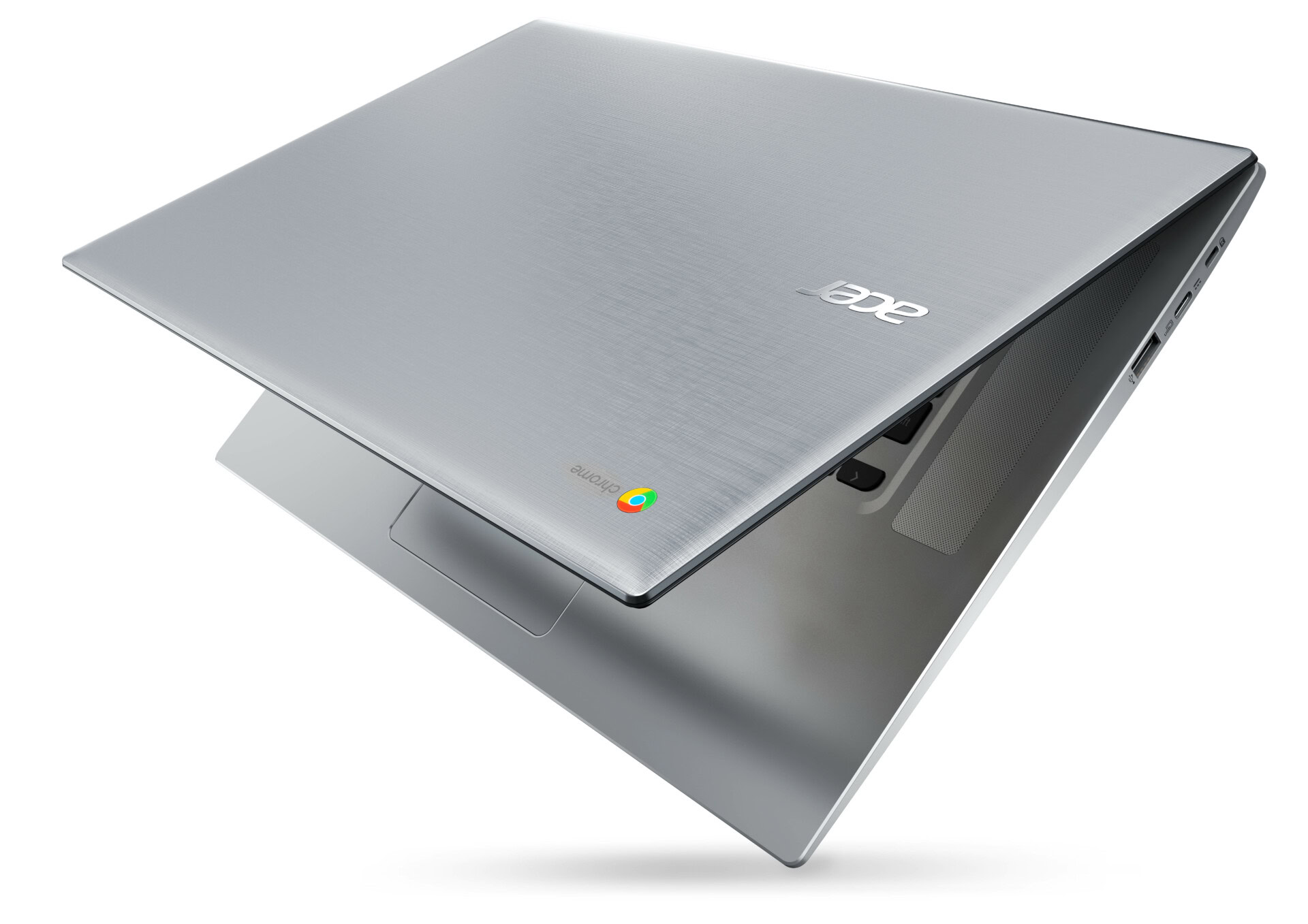
Acer introduced the Chromebook 315 during CES 2019. Scheduled to arrive in Q1 2019, it will be the company’s first Chromebook based on an all-in-one “APU” processor manufactured by AMD. Acer typically guns for Intel-based processors in Chromebooks, but the company chose custom APUs for this model to better support Chrome- and Android-based apps. APUs (standing for “Accelerated Processing Unit”) combine a CPU and GPU in a single chip.
Acer also announced a new Windows 10 laptop, the Swift 7. The 14-inch 1,920 x 1,080 touchscreen notebook has very thin bezels, allowing it to have a 92 percent screen-to-body ratio. The body of the notebook is also very thin at just 9.95mm and is incredibly light at just 1.96 pounds, as it is made of magnesium-lithium and magnesium-aluminum alloys.
HP
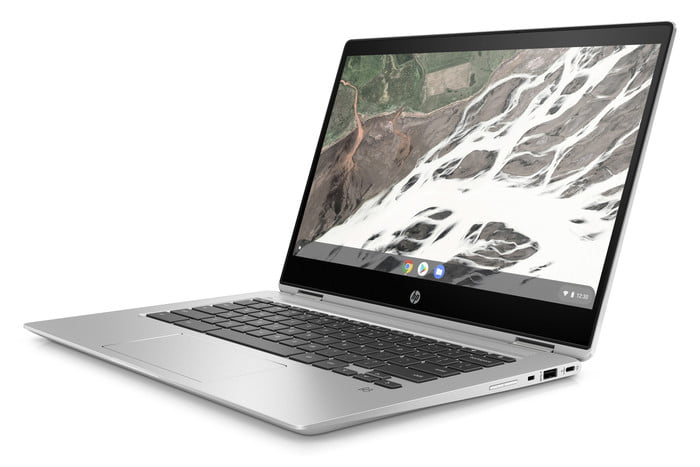
HP went big with Chromebooks at CES 2019 with the announcements of the HP Chromebook x360 14 G1 and HP Chromebook 14.
The latter comes with either AMD’s A4 or the A6 series of processors inside, along with either Radeon R4 or R5 GPUs. It will also have a 14-inch 1,366 x 768 display with a 180-degree hinge, along with 4GB of RAM and 32GB of SSD storage. The HP Chromebook 14 will also weigh 3.40 pounds and have a top battery life of 9 hours and 15 minutes.
The more powerful Chromebook x360 14 G1 comes with Intel’s 8th generation Pentium, Core i3, i5, or i7 CPUs inside, depending on which model you want. It has 16GB of RAM and either 32GB or 64GB of onboard storage.
Asus
We could spend a long time talking about what ASUS and its ROG gaming sub-brand announced during CES 2019. From laptops and desktops to monitors and computer peripherals, there was very little left out. Instead of going through everything, we’ll touch on ASUS’ new education-focused Chromebook line and the Chromebook Flip C434.
Starting with the education-focused Chromebooks, there are four of them. Two of the Chromebooks maintain a traditional laptop design, while a third acts as a 2-in-1. The fourth doesn’t even have a keyboard — it’s a tablet. ASUS’ first Chrome OS-powered tablet, to be exact.
As for the Chromebook Flip C434, the 14-inch 2-in-1 supports up to 8GB of RAM, 128GB of storage, and Intel’s 8th-generation Core i7-85ooY. The machine also sports two USB Type-C ports, a standard USB port, and a 48Wh battery. Really, though, it’s the modern design with slim bezels that caught our attention and has us looking forward to the future of Chromebooks.
All of ASUS’ education-focused Chromebooks should be available by the time summer shows up. The Chromebook Flip C434 will launch sometime during the coming months.
Everything else!
- Arlo Security System announced, Arlo Ultra 4K security camera ships later in January
- Google-enabled Smart Mirror announced at CES
- Qualcomm hopes Alexa and cockpit platform boost car smarts
- nubia REDMAGIC Mars global availability and price confirmed
- Ring reveals new smart lights and a new video doorbell made for renters
- The Schlage Encode Wi-Fi smart lock won’t need a hub device to work
- GE’s Kitchen Hub is a huge, Android-powered touchscreen that mounts above your stove
- You can get the Ambeo 3D soundbar from Sennheiser this May
- The Coolpad Dyno Smartwatch is a new 4G LTE wearable made for kids
- Jam Audio debuts lightest true wireless earbuds yet at CES 2019
- Sol Republic comeback includes true wireless, noise cancelling earbuds
- House of House of House of Marley Google Assistant speaker reduces, reuses, and recycles
- The JBL Link Bar is alive again, along with the new JBL Link Drive
- Your next laptop or smartwatch might have Tile’s item-finding tech
- Garmin’s first 4G-connected watch is a repurposed vivoactive 3 Music for Verizon
- Google Assistant and Alexa devices will soon work with Samsung smart TVs
- Blue Ember XLR microphone: Smaller and cheaper than a Yeti
- Asus’ education-focused Chromebooks should withstand some abuse
- Alexa, what’s new with Edifier’s latest smart speakers?
- Jabra’s noise-cancelling Elite 85h headphones get smart with AI
- Hands-on: Withings packed an ECG into its new customizable hybrid watch
- Klipsch throws hat in true-wireless ring at CES 2019
- This KitchenAid Smart Display has an IPX5 water resistance rating
- Wear OS smartwatches can soon be used to control Whirlpool smart appliances
- Mavin Air-X true wireless earphones pack next-generation performance
- Matrix’s new solar-powered smartwatch never needs to be charged
- Arm unveils new image processors for better HDR pictures
- We talk with OnePlus about T-Mobile, the new TV and more
- Naughty America AR porn is insane
- Hisense U30 phone quietly lands at CES
- TCL is now doing headphones like it does TVs; decent and cheap
- IBM’s new weather system will use your smartphone sensors for better forecasts
- Google’s Project Stream beta to end Jan. 15, AMD Radeon GPUs used for gaming service
- Mobvoi smartwatches to get fall detection and new fitness features in new update
- Hands-on with the Cat S48c rugged phone, available now on Verizon
- I printed a picture of me eating grilled chicken onto a Gorilla Glass phone case
- Lenovo’s new Yoga laptop doesn’t do 360-degress, gains new AI tricks instead
- This new $50 accessory from Anker brings Google Assistant to your car
- Mobvoi’s new TicWatch E2 and S2 lack features for a reduced price
- Razer and Lofelt will get us closer to Ready Player One with new haptic gaming accessories
- Bluetooth mesh positioned to provide de-factor protocol for smart homes
Buzzwords at CES 2019
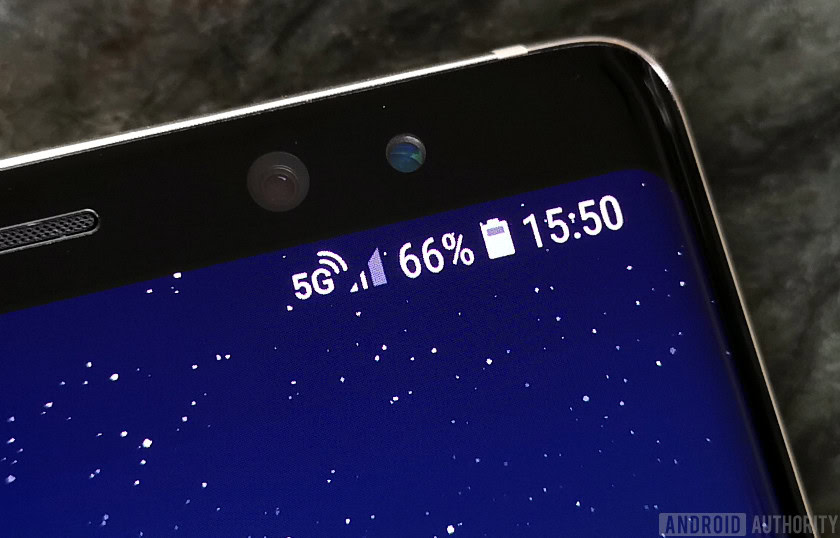
While every company tried to push its own products as being innovative and original, we expected a few buzzwords to get repeated ad nauseam during CES 2019. We weren’t disappointed!
Here’s our list of the words we’ve gotten sick of hearing:
- 5G — The network of the future is coming in 2019, and many companies touted how their products will take advantage of the new speeds.
- XR — As if VR (virtual reality), MR (mixed reality), and AR (augmented reality) weren’t already buzzwords, the new all-encompassing XR (extended reality) is starting to make the rounds.
- AI — Even though AI has been a big buzzword in 2018, it will continue to be a hot topic in 2019, with more and more products having AI capabilities.
- 8K — Televisions and computer monitors will be at CES 2019, and some of them will have 8K resolutions. Now that 4K is more ubiquitous, companies are looking to 8K to entice consumers to upgrade their current displays.
- Blockchain — Gary Sims explains Blockchain here. We expect a lot of companies to use this in advertising materials.
- IoT — IoT stands for “Internet of Things.” As smart home products become more accessible to everyday consumers, IoT is a big buzzword.
- Big Data — Although this has been a buzzword for years now, it will continue being a buzzword in 2019 for sure.
Roundups galore!
You can’t go to an event like CES and not have some sort of reaction to everything. That’s why we have several lists of the best (and weirdest) products we saw at CES 2019. You can check out all of our CES 2019 roundups below!
- Android Authority’s CES Top Picks 2019 Awards: Our favorite products from the show
- The best smartphones at CES 2019
- Best VR and AR products of CES 2019
- Weird CES: The bizarre things we didn’t expect to see
- Smartwatch roundup: All the best wearables we could find at CES 2019
And that’s a wrap for now, ladies and gents! We’ll be sure to add more announcements and reactions over the coming days!
Thank you for being part of our community. Read our Comment Policy before posting.